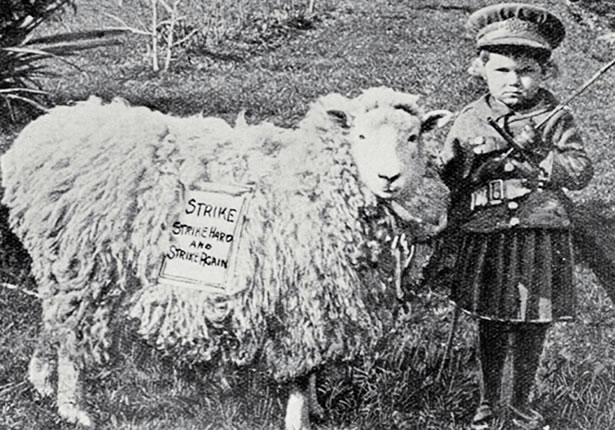
In September 1914, young Ruth Swanson of Feilding gave away her cherished pet lamb to support New Zealand’s war effort. She donated her woolly companion to the national Patriotic Fund, which raised over £36 (equivalent to around $5400 in 2014) from its sale before returning the animal to the little girl.
Ruth was one of thousands of New Zealanders who donated money, goods or time to help those affected by the First World War. This charitable work was co-ordinated by patriotic societies. Around a thousand of these groups were formed during the war to support New Zealand soldiers and their families, and give relief to civilian refugees in war-torn countries such as Belgium. After the war, patriotic societies became vocal advocates for the ongoing care of returned veterans.
Women made up most of the patriotic societies’ grassroots membership. Excluded from the fighting, women (and children) threw themselves into patriotic work as a way of participating in the war effort and emulating the sacrifices being made by loved ones at the front. Some earned international recognition for their efforts, with the Belgian government awarding medals to several New Zealand women for their work on behalf of Belgian refugees. Lady Liverpool, wife of the governor of New Zealand, became a role model for many women, establishing her own charity, the Lady Liverpool League, shortly after the war began.
Wartime fundraisers were both imaginative and tireless in their hunt for donations. As well as selling animals, they grew vegetables, knitted socks, collected bottles and eggs, baked fruitcakes, ran lotteries and organised community carnivals. By 1920, New Zealanders had raised an estimated £5.7 million ($500 million) for patriotic causes.
